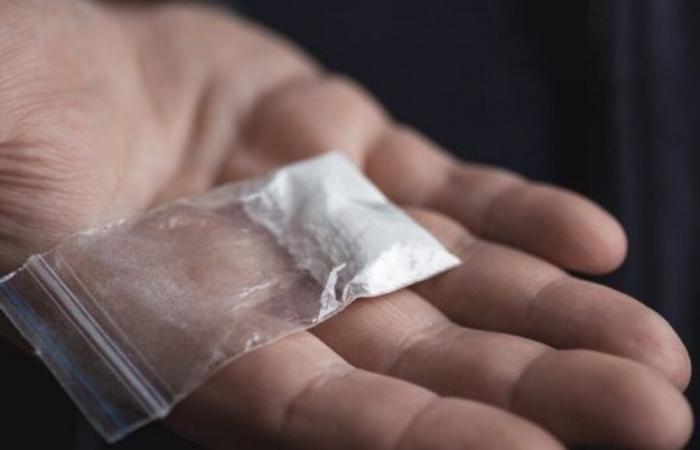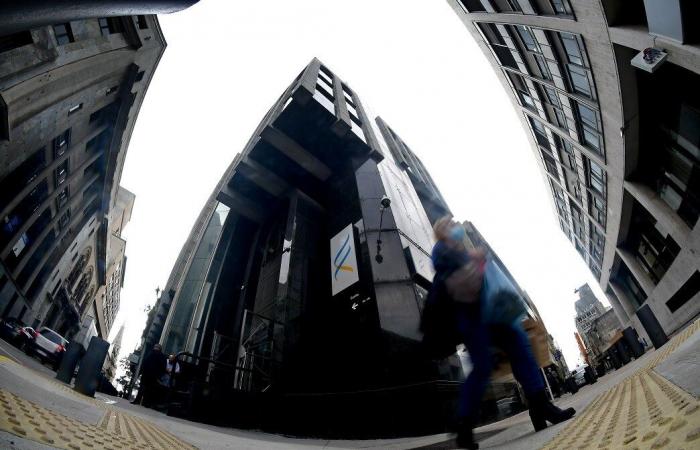The capture last Sunday the 16th of a “mule”who was carrying a load of cocaine Brazil to Uruguay to sell it in the mouths of Montevideo and for “delivery” through Telegram, revealed the route carried out by Uruguayan retail traffickers. Areas of Brazil, as well as Paraguay, have been transformed in recent years into enormous warehouses of cocaine from Colombia, Peru and Bolivia that supply criminal organizations in several Latin American countries.
Large shipments of cocaine are taken to Brazilian ports of Paranaguá, Santos and Belén and then hidden in containers transported by ships heading to European terminals such as Hamburg, Antwerp, Le Havre and Rotterdam. These mega deals are agreed upon by Brazilian bands First Capital Command (PCC) and Red Command (CV) and Italian mafias. These operations involve millions of dollars.
However, the retail sales carried out by drug gangs that supply drug outlets in the Buenos Aires urban cone also produce enormous profits. Silver sea, rosary beads and The Silver, among other Argentine cities. The same thing happens to Montevideo organizations that dominate neighborhoods of the capital and go to supply drugs wholesale in Brazil.
Like transatlantic mega trafficking where the volumes of pure cocaine generate million-dollar dividends for the volume transported, micro trafficking also obtains significant profits, because they “cut” the drug with other substances—anesthetics, analgesics and caffeine—and its value is reduced. multiplied by at least four in the Montevideo domestic market. Drug traffickers obtain these important sums with a low risk, since the “mules” transport loads of no more than 20 kilos of cocaine from Brazil to Uruguay. If one of them is captured by the Police, the shipments transported by other “mules” more than cover the losses of the leader who runs the organization.
Police monitoring of a Uruguayan “mule”, a 30-year-old electrician with no criminal record and who lived in an apartment on a charming street in the neighborhood Wellsreveals behind the scenes of a million-dollar business, outside the law and dangerous.
Photo: Francisco Flores
For the first time, a court file provides details of trafficking of 16 kilos of cocaine, which could generate income for the drug gang in excess of US$800,000 in the retail market. This figure represents the sale to consumers of cocaine “stretched” with other substances. But his case serves, in particular, to show how the drug business works in practice in the country.
On Sunday the 16th, the Cerro Largo prosecutor of the 1st Shift, Adriana Umpierrezreceived a notice from officials of the General Directorate of Repression of Illicit Drug Trafficking (Dgrtid) that two suspects of drug trafficking were being monitored from Montevideo.
The two alleged drug traffickers arrived at Mello and then they headed to a hotel where they got into a gray Volkswagen Gol car that had been rented. They filled up on fuel at a service station and traveled along route 26 towards Río Branco. Upon entering that city, the suspects entered a shopping center.
There they bought a bag. In the same car they crossed into Brazil through the Mauá bridge and once in Brazilian territory they went to a pharmacy and a restaurant. Then they waited for someone at the side of the car. A few minutes later a woman approached them with a suitcase on wheels. The newcomer got into the car and several minutes later, she got out of the Volkswagen Gol taking her suitcase.
The two individuals got into the car and drove off. Shortly afterward they stopped on a street where there were no people. They tried to place a bag under the hood. However, the lid did not close due to the size. Inside the bag were almost 17 kilos of pure cocaine. After many turns, the men returned to Route 26 and then took an alternative route to avoid going through Customs.
Once they entered Melo, the two subjects stopped in front of a bakery located on Route 8 and De los Jazmines where they bought cakes. Immediately afterwards, they headed to the hotel to leave the car. There they were detained by several police investigators.
The police seized money, cell phones and the bag containing 16,780 kilos of cocaine. When consulted by the officers, both detainees refused to hand over the passwords to their cell phones, which will be examined by court order.
Photo: Estefanía Leal.
The police also seized money. One of the drug dealers had $31,550 and the other had $3,700 and US$348.
After speaking with his lawyer, Bruno Terra, the electrician who lived in Pocitos agreed to sign an agreement with prosecutor Umpierrez to go to an abbreviated trial for a transportation crime. His accomplice, also without a criminal record and defended by Terra, reached an agreement with the Prosecutor’s Office for a crime of transporting and supplying drugs because it was proven that days ago he sold hallucinogens in Montevideo.
Prosecutor Umpierrez insisted Judge Henry Robaina that the electrician had committed the crimes of importing and transporting narcotics, since the substance entered from Brazil to Uruguay after having traveled, using an imported car, for almost 100 kilometers and two countries.
The judicial document indicated that the accused expressly stated that he was aware of the crimes attributed to him and agreed with the proposal made to him by the Prosecutor’s Office. Since the electrician confessed the facts, no aggravating circumstances were applied.
By virtue of this, prosecutor Umpierrez asked Judge Robaina to sentence the accused as the criminally responsible perpetrator of a crime of transporting a narcotic substance. He must serve a sentence of three years and eight months in effective prison. Meanwhile, his accomplice was sentenced to three years and 11 months in prison for the crimes of transporting and supplying drugs.







